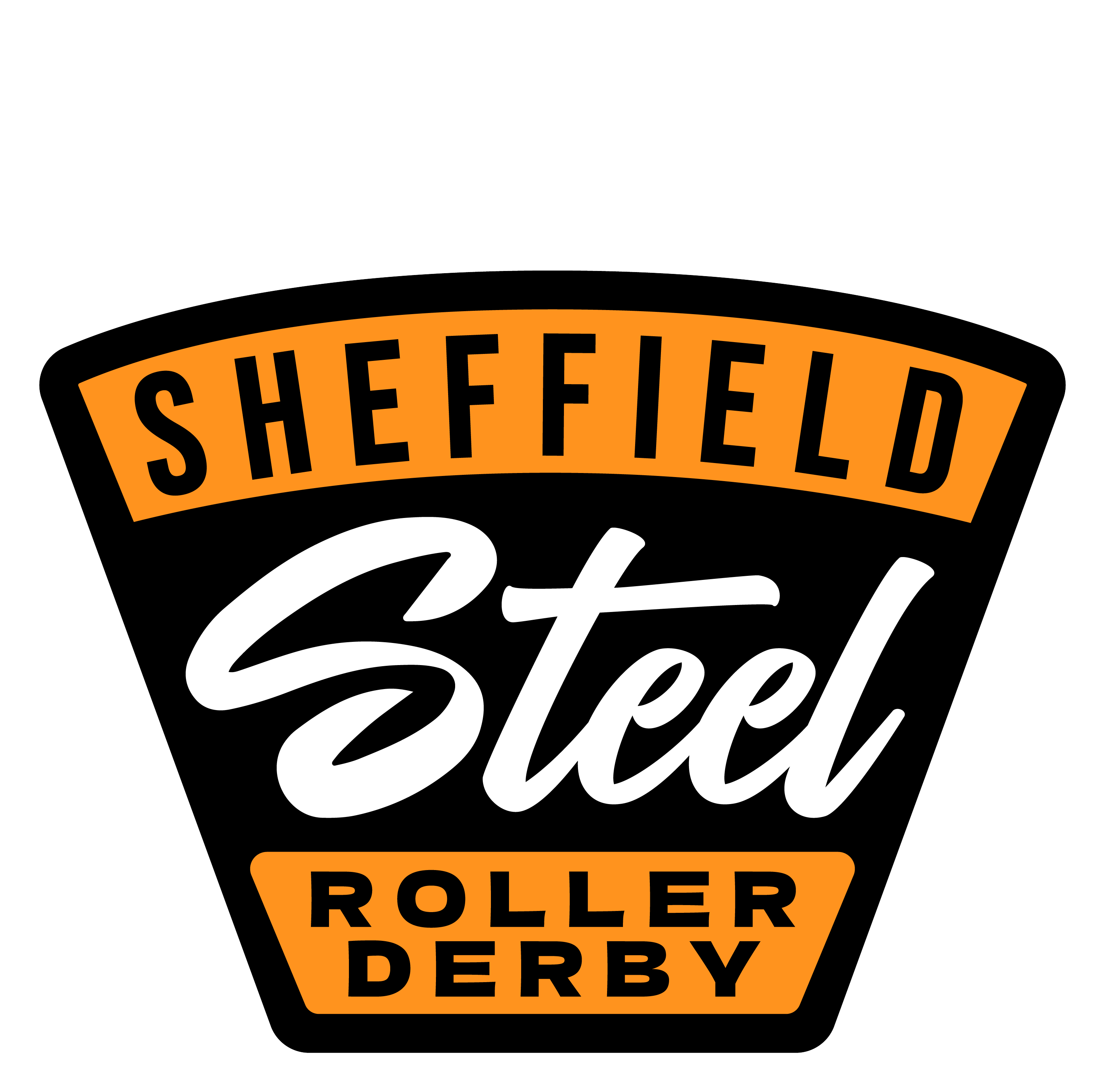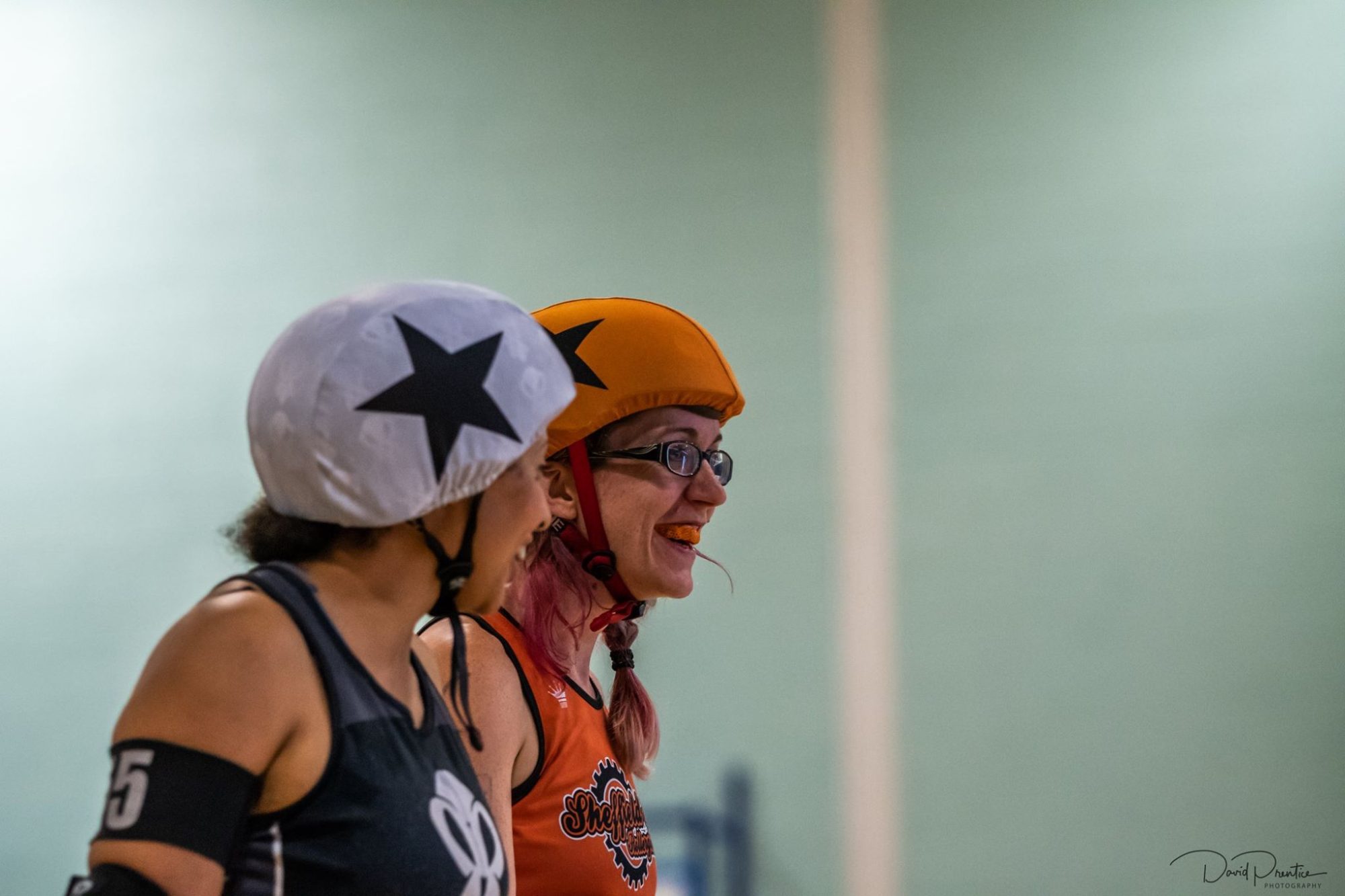A big part of roller derby is the set of minimum skills that every skater needs to be able to do in order to be game ready. These skills range from being able to stand on one leg in skates for 30 seconds, all the way up to taking and giving a big ol’ full body check safely.
Passing minimum skills is a rite of passage for every skater – and it isn’t easy, and it definitely isn’t always quick! In this series, some of our skaters share their minimum skills journeys and their top tips for persevering when it seems like 27 in 5 or reverse crossovers are constantly out of reach.
Pippa-Armi
How long have you been skating?
7 Years
What level are you skating at now?
A Team – Captain
How long did it take you to pass your minimum skills in full?
Over 18 months
How did you feel while you were working towards passing?
Frustrated, mainly! I tried to be calm about it and not get annoyed with my progress but at times, especially when others who started way after me were already on the B team, that was hard.
What was the final skill you passed?
Stance and stride. I could hit people far and wide, but could I master a good derby stance? No, I could not.
How did you feel after you passed?
OVERJOYED! I was so happy! I also felt relief, and success at the fact I’d not given up.
What advice would you give to yourself back then?
Be kinder to yourself, everyone has their own journey. That you never know where you might end up if you don’t give up!
What advice would you give to people who are worried about passing min skills now?
Break it down and give yourself mini goals. Do what you can off skates to build up strength and stability (clean your teeth on one leg, or in a side surf position, in derby stance).
Anything else you’d like to say?
My tops tips that got me through:
- Consistent attendance at training.
- Setting mini goals. I’d work out where I was failing and set myself mini goals over a period of time to then improve the skill that was required. This way I could see progress, even if I hadn’t passed the skill.
- Writing successes down. I had a skating notebook that I’d write in at the end of each session. What went well? What did I learn? What can I do differently next time? If I was feeling particularly crappy about not passing skills I could look over my notes and remind myself of that time I nailed that hip check, a compliment from another skater, when I was brave to transition the other way.
- Taking off the pressure. Now this one is easier said than done, especially as other skaters who started after me were flying through and playing on the B team whilst I was still learning how to have a good stance. But I reminded myself it was my journey, that I wanted to pass, that I wanted to play on a team someday and just to try and enjoy learning. At that point I never dreamed I would be captain of the A team, whhhhhhhhhhhhhhhhhattttttttt!
- Ask questions, ask for observations, ask for feedback, pester people. I would ask anyone I was buddied up with, “How do you do that? What am I doing wrong with this skill? Can you just show me what you do?” I really struggle to learn physical things, so by asking lots of people I would eventually find someone who described that skill in a way that meant I finally understood what I needed to do and then I would repeat repeat repeat repeat repeat until I got it.
Also in this series:

